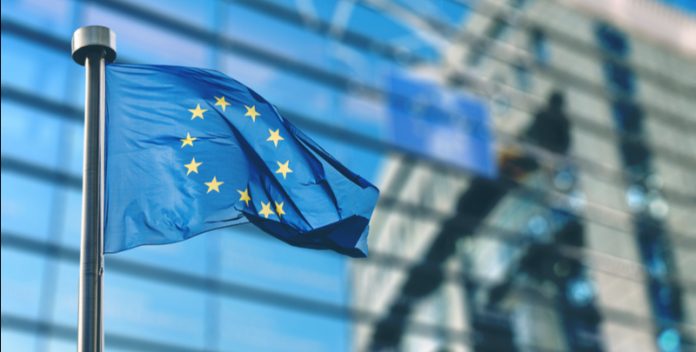The euro and the US. .dollar will both be in the spotlight today. In Europe, the European Central Bank (ECB) will take the interest rate decision, whilst in the U.S. a testimony by ex FBI Director, James Comey will bring attention back to the political storm brewing in Washington.
The euro U.S. dollar exchange rate was trading at $1.1258 heading into the packed day.
| What do these figures mean? |
|---|
| When measuring the value of a pair of currencies, one set equals 1 unit and the other shows the current equivalent. As the market moves, the amount will vary from minute to minute. |
| For example, it could be written: 1 EUR = 1.12829 USD |
| Here, €1 is equivalent to approximately $1.13. This specifically measures the euro’s worth against the dollar. If the U.S. dollar amount increases in this pairing, it’s positive for the euro. |
| Or, if you were looking at it the other way around: 1 USD = 0.88789 EUR |
| In this example, $1 is equivalent to approximately €0.89. This measures the U.S. dollar’s worth versus the euro. If the euro number gets larger, it’s good news for the dollar. |
The ECB is expected to keep the interest rate unchanged. However, expectations are riding high that the central bank’s Governing Council will take the first small steps towards the normalisation of its monetary policy. The ECB is expected to subtly adjust its language in the opening statement and forward guidance by dropping any mention that interest rates could be lowered in the future. Should this be the case, then the euro could receive a boost, as it could if the ECB also revise growth forecasts higher for the year.
| Why does strong economic data boost a country’s currency? |
|---|
| Solid economic indicators point to a strong economy. Strong economies have strong currencies because institutions look to invest in countries where growth prospects are high. These institutions require local currency to invest in the country, thus increasing demand and pushing up the money’s worth. So, when a country or region has good economic news, the value of the currency tends to rise. |
The ECB is expected to reiterate that eurozone inflation continues to remain stubbornly low with no convincing signs of an uptrend. Finally, there are also expected to reaffirm their commitment to maintaining interest rate levels at current low levels.
Although the changes appear to be very small, they are in fact the first steps to tightening monetary policy via tapering the bond buying programme or raising interest rates. When interest rate expectations increase, even very slightly, it usually boosts the currency.
| Why do raised interest rates boost a currency’s value? |
|---|
| Interest rates are key to understanding exchange rate movements. Those who have large sums of money to invest want the highest return on their investments. Higher interest rate environments tend to offer higher yields. So, if the interest rate or at least the interest rate expectation of a country is relatively higher compared to another, then it attracts more foreign capital investment. Large corporations and investors need local currency to invest. So more local currency used then boosts the demand of that currency, pushing its value higher. |
James Comey’s appearance before Congress could drive the dollar
Whilst demand for the euro was strengthening, demand for the U.S. dollar has been falling. The recently fired, ex FBI Director James Comey is due to appear before Congress today to give his testimony over Trump’s links to Russia during the presidential campaign. This testimony could prove to be the biggest test yet to the Trump administration. Attention had recently diverted away from Trump’s problems on Capitol Hill, however this event will shift the focus directly back onto the political storm brewing. This is dollar negative not due to political uncertainty but more because of the fact that it could distract Trump from his dollar boosting economic agenda.
This publication is provided for general information purposes only and is not intended to cover every aspect of the topics with which it deals. It is not intended to amount to advice on which you should rely. You must obtain professional or specialist advice before taking, or refraining from, any action on the basis of the content in this publication. The information in this publication does not constitute legal, tax or other professional advice from TransferWise Inc., Currency Live or its affiliates. Prior results do not guarantee a similar outcome. We make no representations, warranties or guarantees, whether express or implied, that the content in the publication is accurate, complete or up to date. Consult our risk warning page for more details.
This article was initially published on TransferWise.com from the same author. The content at Currency Live is the sole opinion of the authors and in no way reflects the views of TransferWise Inc.





